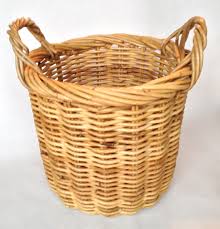记忆方法
1. basketball => basket.
中文词源
basket 篮子
来自词根fasc, 编织,捆,词源同basin , fascism.
英语词源
- basket
-
basket: [13] Basket is something of a mystery word. It turns up in the 13th century in Old French and Anglo-Norman as basket and in Anglo-Latin as baskettum, but how it got there is far from clear. Some have suggested that Latin bascauda ‘washing tub’, said by the Roman writer Martial to be of British origin (and thought by some etymologists to be possibly of Celtic origin), may be connected with it in some way, but no conclusive proof of this has ever been found.
- basket (n.)
- early 13c., from Anglo-French bascat, origin obscure despite much speculation. On one theory from Latin bascauda "kettle, table-vessel," said by the Roman poet Martial to be from Celtic British and perhaps cognate with Latin fascis "bundle, faggot," in which case it probably originally meant "wicker basket." But OED frowns on this, and there is no evidence of such a word in Celtic unless later words in Irish and Welsh, counted as borrowings from English, are original.
权威例句
- 1. He'd put his dirty laundry in the clothes basket.
- 他会把自己的脏衣服扔进洗衣篮里。
- 2. She nestled the eggs safely in the straw in Jim's basket.
- 她把鸡蛋轻轻地放在吉姆篮子里的稻草上。
- 3. The large log basket can be used to tidy toys away.
- 大木篮子可以用来装玩具。
- 4. He sent a basket of exotic fruit and a card.
- 他送了一篮子异域水果和一张卡片。
- 5. I dis-covered a mutilated cassette stuffed in a waste-basket.
- 我发现一盘被弄坏的盒式磁带丢在废纸篓里。

